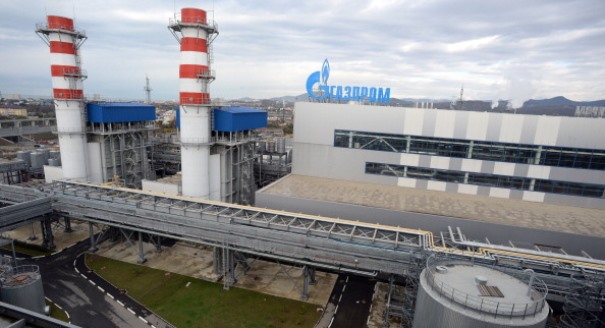Despite U.S. and EU sanctions against Russia after President Vladimir Putin annexed Crimea in March, it is business as usual between European companies and Russia’s energy sector. Yet there is a growing consensus that this dependence must be broken.
On April 1, Hungary signed a $13.8 billion credit agreement with Russia for an upgrade of its Paks nuclear plant. The same day, Gazprom, Russia’s giant state-owned energy company, announced a 40 percent increase in the price of gas for Ukraine. Ukrainians will now have to pay $385.50 for 1,000 cubic meters of gas in the second quarter of 2014, a rise from the $268.50 agreed in December. That’s more than what Gazprom’s other European clients pay.
French energy company Total is holding talks with Russia’s Lukoil to develop shale gas in Russia. Saipem, Italy’s largest oil service provider, has signed a $2.8 billion contract to build Gazprom’s new South Stream pipeline. That pipeline, which had long been in the planning stages, is supposed to run under the Black Sea and deliver gas from Russia to Southeastern Europe. RWE, one of Germany’s biggest energy companies, has sold its oil and gas unit to a group of Russian oligarchs for $7.1 billion.
Yet despite a number of lucrative energy deals, attitudes toward Europe’s dependence on Russia are changing, with the United States playing an increasingly important role.
In the case of Ukraine, the International Monetary Fund will cushion Gazprom’s price increase through a special loan package. That will relieve some of the political pressure from Russia. But it is only a short-term measure.
The United States and the EU are seeking fundamental reforms to Ukraine’s highly corrupt energy sector. During a meeting in Brussels on April 2, U.S. Secretary of State John Kerry and the EU’s foreign policy chief, Catherine Ashton, focused on how to build Ukraine’s energy security and rid the sector of corruption.
In particular, Kerry and Ashton called for “the long-overdue restructuring and reform of Naftogaz,” Ukraine’s state-owned gas company. The longer-term goal, they added, was the full integration of Ukraine into the European energy market.
That is a big change in policy by Washington and Brussels. It will require considerable pressure on the next Ukrainian government to implement such radical reforms in a way that can finally end Russia’s invidious hold over Ukraine’s energy sector.
Among EU member states, Poland is stepping up its efforts to establish a European energy union and will make this one of the key agenda items at next June’s summit of European leaders. “Europe needs to demonstrate more and more solidarity in the area of energy,” Polish Prime Minister Donald Tusk said on March 29 during a visit to Silesia, home to the country’s coal industry.
One of Tusk’s main ideas is to turn the European Commission into a power buyer. “We have worked on a number of ideas which could make the EU a sort of ‘power buyer,’ thanks to which countries that supply energy to Europe will not be able to slap tough conditions onto delivery contracts as they have done until now,” Tusk said.
It’s hard to see Germany and Italy signing up to this. But the fact that it is being talked about shows the need for the EU to break its energy dependence on Russia.
That will not happen unless the EU speeds up diversification of its energy sources. The United States will release some of its stocks and sell them to Europe. But that is a short-term measure that will have little impact.
Bruegel, a Brussels-based economics think tank, has published an article and interactive chart that analyzes the options European countries have for cutting their energy dependence on Russia. The switch would be costly, the authors argue, especially if long-term gas contracts between European companies and Gazprom were broken. “It is a question of political will and compensations,” according to the article. In other words, it might just be doable.
The big unanswered question is what role Iran might have in changing Europe’s energy mix. If the United States and the EU could reach an agreement with Iran over its nuclear program, that would give Europe what it has long sought: access to Iranian gas. Were that to happen, Russia’s ability to use energy as one of its main foreign policy weapons would surely be diminished.
But Russia’s ability to scupper those talks should not be underestimated either. The Kremlin knows what is at stake.






.jpg)